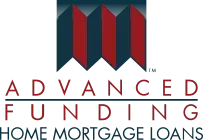

When you buy a home or refinance your mortgage, you should expect to pay closing costs. What are these fees and what is it you are paying for?
Closing Costs Defined
Closing costs are charges for basically all the services it takes to put together a mortgage loan. These include:
Origination Fee
There is an origination fee that goes to the lender for processing and evaluating all your data and drawing up all the documentation. Origination fees often total about 1% of the total loan amount
Appraisal Fee
Lenders need to have an accurate picture of the value of the property they are financing. They will hire a third party to appraise the home based on its condition and upgrades. These can cost several hundred dollars.
Inspection Fee
Similar to the appraisal, lenders will send out an inspector to make sure the property is in good working order and that there will not be any huge money-pit surprises after the sale closes. The inspection can cost several hundred dollars.
Credit Reporting Fee
Lenders will pull your credit at the beginning of the loan process to evaluate your trustworthiness as a borrower.
Title Search and Insurance Fees
Lenders will also hire a third party to do some research on the property’s title to make sure there are no liens or other judgments that might result in litigation down the road. You will be required to pay for this search - amounting to a couple hundred dollars- as well as for lender title insurance which protects your lender from a loss if any issues are discovered after the loan is made. An average policy could run about $900. You can opt to pay for title insurance as the borrower as well.
Property Taxes
Most local governments assess taxes on properties to help pay for things like emergency services, roads, and schools. The amount can vary dramatically from city to city and state to state. You will likely have to pay a portion of your property taxes up front that will be placed in an escrow account until it is due.
Homeowners Insurance
You will be required to buy and keep an active homeowners insurance policy as long as you have a mortgage. This will reimburse you for damages to the house that occur from natural disasters, accidents, and theft. Typical policies will cost about $35-65 a month for every $100,000 of the home value.
Mortgage Insurance
If you do not contribute a 20% down payment, you will probably have to pay mortgage insurance in one form or another. This is a policy that protects the lender and reimburses them up to 20% in the case that you default on the loan. Mortgage insurance can run between $30-$70 a month for every $100,000 of home value.
Discount Points
Lenders will allow you to “buy down” your loan interest rate when you prepay some of the interest upfront with points. One discount point is equal to 1% of the loan amount. These fees will be paid at closing.
Recording Fee and Transfer Tax
Local governments charge buyers for transferring the property title to a new individual and for entering the sale into the government records. The costs will vary by region.
In addition to the above closing costs, you might also have to pay for things like flood certification, HOA transfer fees, lead-based paint inspections, pest inspection fees, prepaid daily interest charges, rate lock fees, or survey fees. Your lender is required to spell out all the fees they are charging and how much it is going to cost. In some cases, you may be able to roll your closing costs into the balance of the loan so that you do not have to pay such a large amount upfront.
Give us a call today if you have any questions about closing costs.
These materials are not from HUD or FHA and were not approved by HUD or a government agency.

